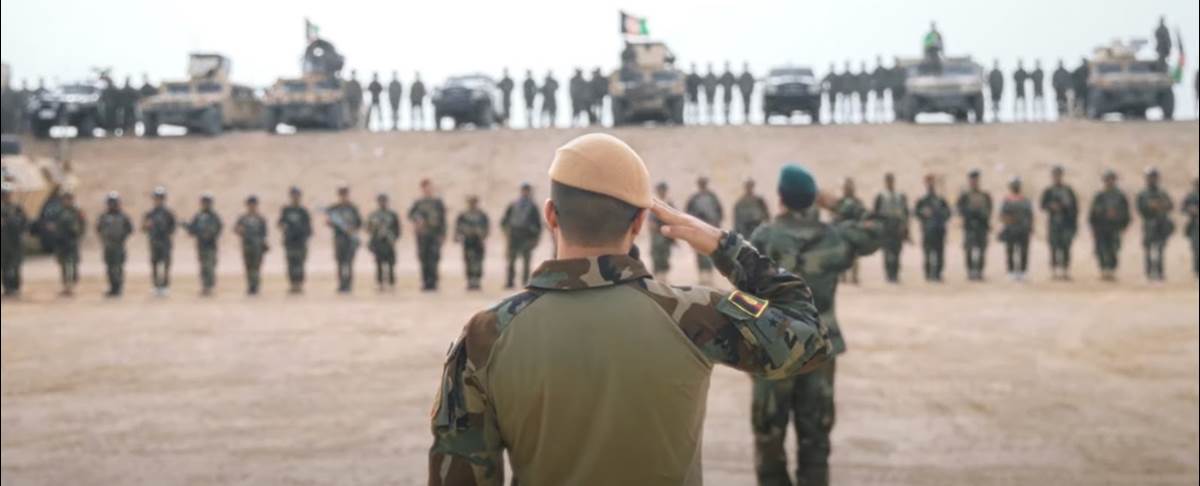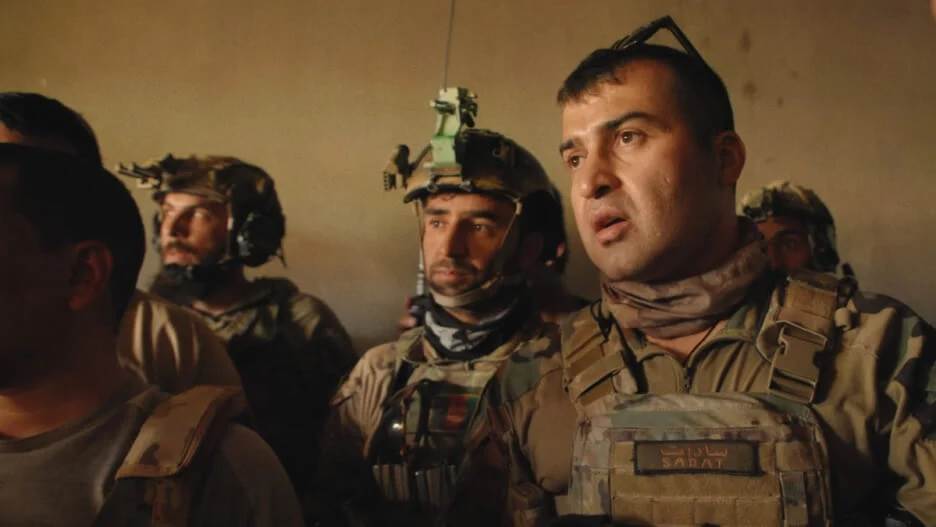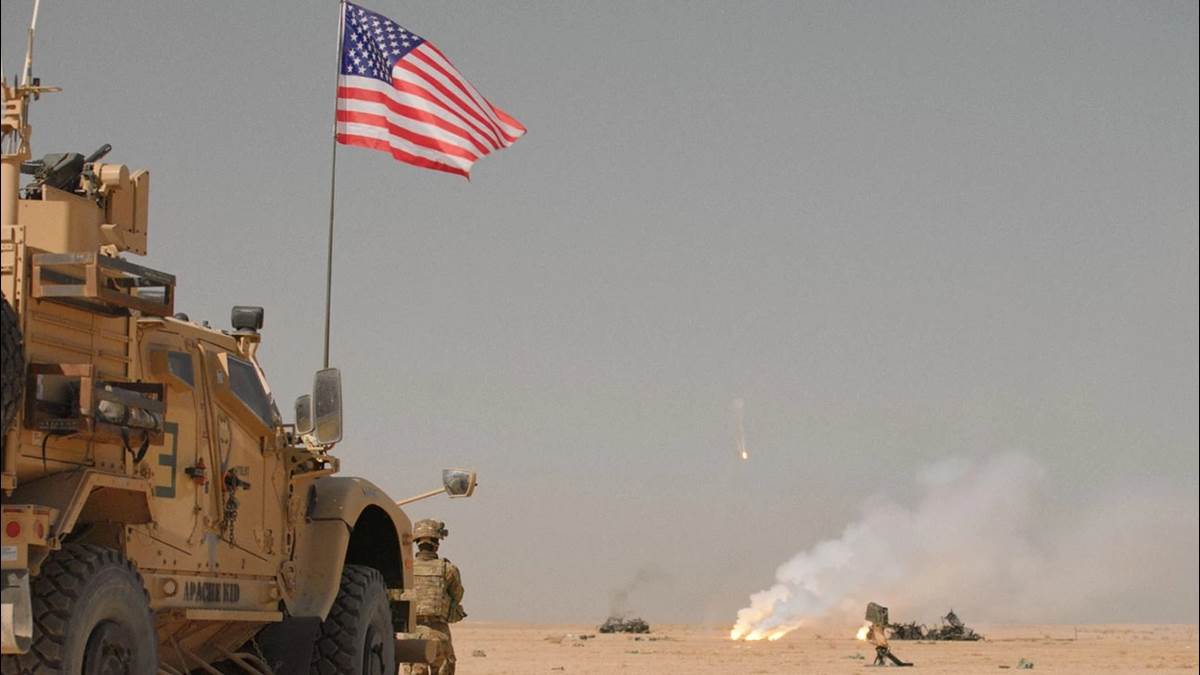The new National Geographic feature documentary Retrograde from filmmaker Matthew Heineman (A Private War, Cartel Land, City of Ghosts) opens with a montage of audio clips covering four consecutive U.S. presidents’ comments about the war in Afghanistan: George W. Bush, Barack Obama, Donald Trump, and lastly Joe Biden. It’s a sobering reminder that American involvement in that conflict spanned four administrations, and regardless of where your political affiliations lie, it’s a difficult reality to face.
As someone who trades almost entirely in escapism (and who admittedly isn’t a fan of most wars that don’t feature “Star” in front of that word), Retrograde was not something I was looking forward to sitting through. But at tonight’s IDA screening of the film in Hollywood, I found myself engrossed in a very human story.
At the beginning of the film, Retrograde introduces us to a group of Green Berets from the United States Army Special Forces, stationed in Afghanistan to train Afghan soldiers in their continued fight against the Taliban. Leading those soldiers is Lieutenant General Sami Sadat, a commanding speaker and all-around optimist (even in the face of extreme opposition) when it comes to the future of his country. Near the end of the documentary’s first act, when the US Army gets word that it will be extracting from Afghanistan entirely, Sadat becomes the key focal point– and inarguable star– of this piece. He orders his troops with confidence and a surprising serenity, giving pep talks, visiting injured combatants, and insisting on visiting the battle’s front lines after a period of leading from a safehouse. He is friendly with the American forces who accompany him before they are pulled out, but he is also obviously heartbroken and beyond disillusioned by that morale-shattering decision. In choosing to follow Sadat, Heineman has given the audience (regardless of its background or interests) an entry point into the concept of idealism vs. hopelessness in this dispiriting war.
Anyone who’s been paying even cursory attention to the news over the past couple years will already know how this somber story ends for Afghanistan, but what makes this film compelling is Sadat’s commitment to his people and to his nation. Heineman and his cinematographer Tim Grucza (both of whom appeared next to producer Caitlin McNally for an illuminating Q&A session following the screening) have also created an eye-catching visual style for this movie, which is shot in strikingly gorgeous 2.39:1 aspect ratio– unusual for documentaries. During their discussion on stage tonight, the filmmakers talked about repeatedly putting themselves in danger– apparently a regular occurrence for Heineman– for the sake of getting the footage they needed. Some of the scenes made me nervous just watching them in the theater, so I can’t imagine actually being there during the fighting, but the result is undeniably worth it. In the final few scenes leading up to the headline-making final evacuations from Kabul aboard jam-packed military cargo planes, we are reminded of both the horrors of war and the inspiring nature of those who would stand up to injustice. And through Retrograde, Sami Sadat seems destined to become a symbol of the latter, while the rest of the film serves as a compelling monument to the lasting impact of American intervention in foreign affairs– for better or for worse.
Retrograde is set to be released this fall from National Geographic Documentary Films.
My grade: 4 out of 5 prematurely celebratory cigars.



